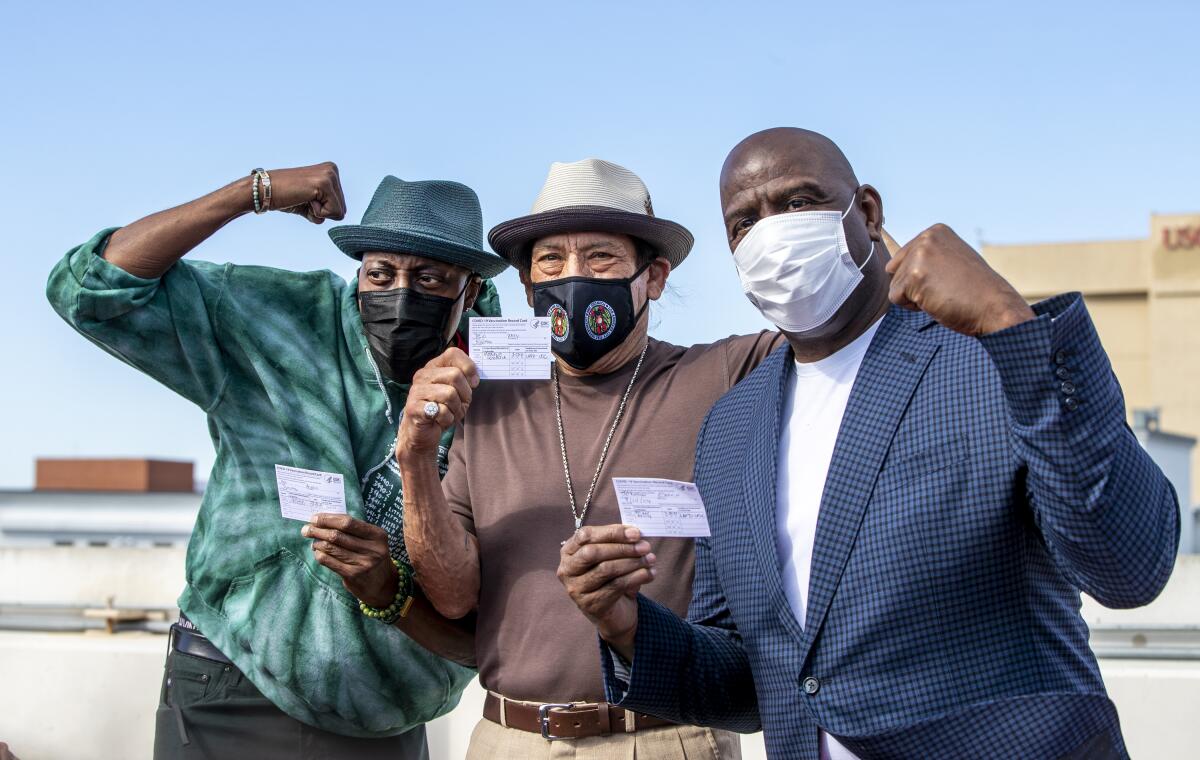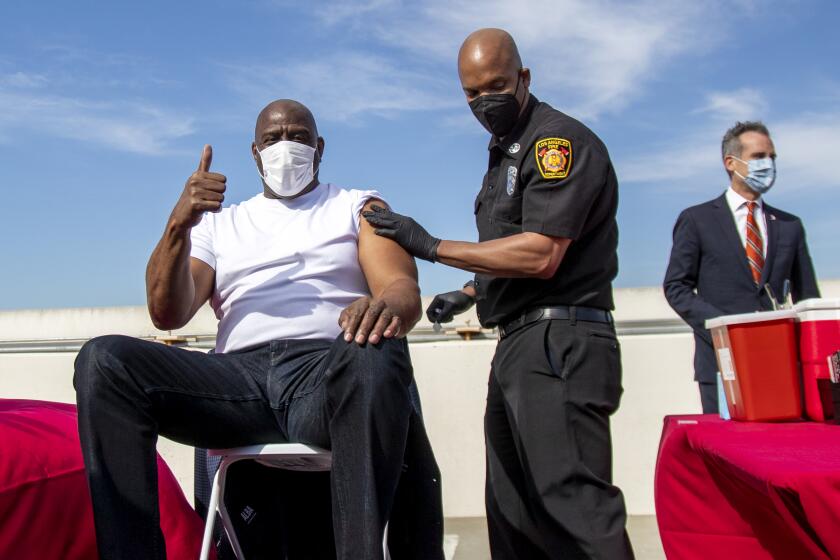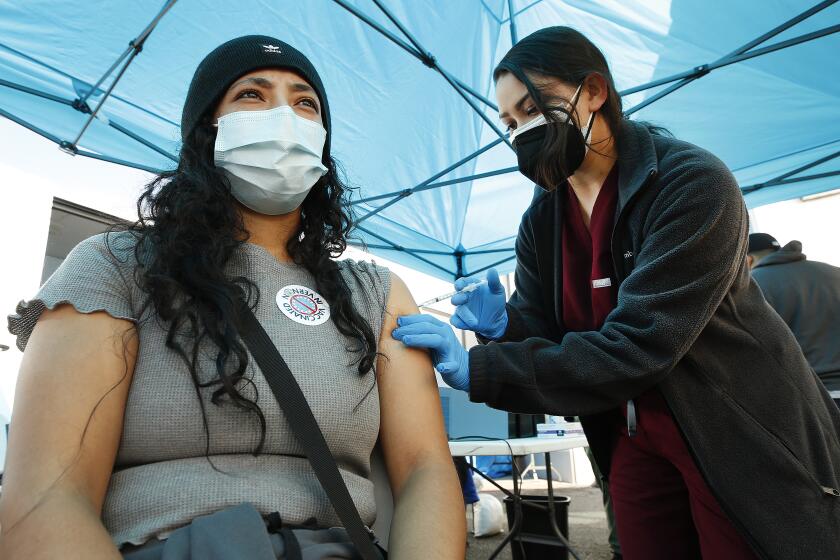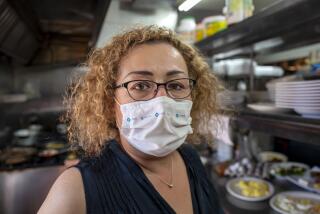Here’s what to do with your COVID-19 vaccination card, including if you lose it

- Share via
The big day is finally here: It’s time for your second vaccine dose. You’ve got your ID, you’ve confirmed your appointment time, and — wait — hang on a second — where did that card go?
You’re not the first person to misplace that piece of paper. Google searches for “lost vaccine card” have ticked up through 2021 as more and more people have gotten a shot (currently nearly half of all Californians).
It’s not the only question people have had about what to do with their vaccine card. Here’s a list of dos and don’ts for the most exciting piece of paper you’ll get this year.
DO: Go back for your second appointment if you’ve misplaced the card
Return for your second appointment as planned with your ID. Your vaccination record — regardless of where you received the shot — will be registered in the California Immunization Registry (CAIR). The provider should have you in the system from last time, and they will be able to issue you a new card.
“Most healthcare providers are connected to CAIR. People can ask their healthcare provider if they are able to access this record and provide a printed copy,” a representative for L.A. County Public Health wrote in an email.
If you lost your card after your second dose, reach out to wherever you got your shots and ask them for a replacement. Again, your information should be in the system, so it shouldn’t be a problem to get you another one. You can also request your vaccination record directly from CAIR.
If you booked your appointment at a city-led mass vaccination site through Carbon Health, you’ll get a secure digital vaccine record called Health Pass as well as the paper card, said CEO and co-founder Eren Bali.
DON’T: Laminate your card
Staples and Office Depot are offering free lamination for vaccine cards, but don’t take them up on it. The heat from the laminating machine can damage the ink. Also, you may need to get a COVID vaccine booster in the future, the county public health department noted, so it’s probably best to leave it unlaminated. A better way to protect it: a clear plastic sleeve, like a badge ID holder. You might have an old one on a lanyard from a conference kicking around somewhere.
We traveled around the L.A. region to ask people whether or not they would take the vaccine, and if not, why. Then we posed their questions to two experts. Here’s what they said.
DO: Double-check the information on it
Make sure your name and date of birth are correct. Ideally, you’ll do this before you leave your first appointment, but if that’s already in the past, it’s still good to check. Ask the provider for a replacement with corrected information if something is wrong.
DON’T: Take it everywhere
Discussions of so-called “vaccine passports” are mostly theoretical at this point. There’s no reason to carry your card in your wallet at all times right now. Keep it somewhere secure in your house like you would any other important document.
DO: Take photos of it for your records
As a back-up for the physical card, you can take photos of the front and back of it and email those to yourself.
DON’T: Share an up-close photo of it on social media
Some people have shared vaccine selfies with their birth dates covered up, ostensibly for identity theft protection. That’s good — it’s never smart to share personal information like that online. But you really don’t want to be widely sharing the other information on the card either, Bali said, particularly as stories crop up about people trying to create fake ones: You don’t want to make it even easier to do that by conveniently providing a recent lot number.
DO: Share your vaccine selfie
Every person who shares a photo of themselves beaming with a fresh shoulder Band-Aid helps the cause, Bali said. Vaccine hesitancy has decreased as the rollout has progressed, but your photo could be the difference for someone you know to go from thinking, “nah, I’ll wait a while longer and see how it goes” to “if this person feels OK about it, so do I.”
“A smiling person is definitely more effective” than a photo of a vaccination record, Bali said.
You heard it here: Post your selfies. It’s good for your (and the public’s) health.
With eligibility expanding, here’s a collection of L.A. Times reporting on ways to get an appointment for the COVID-19 vaccine.









